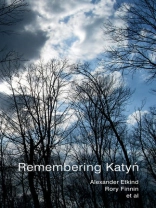Katyn- the Soviet massacre of over 21, 000 Polish prisoners
in 1940 – has come to be remembered as Stalin’s
emblematic mass murder, an event obscured by one of the most
extensive cover-ups in history. Yet paradoxically, a majority of
its victims perished far from the forest in western Russia that
gives the tragedy its name. Their remains lie buried in killing
fields throughout Russia, Ukraine and, most likely, Belarus. Today
their ghosts haunt the cultural landscape of Eastern Europe.
This book traces the legacy of Katyn through the interconnected
memory cultures of seven countries: Belarus, Poland, Russia,
Ukraine, and the Baltic States. It explores the meaning of Katyn as
site and symbol, event and idea, fact and crypt. It shows how Katyn
both incites nationalist sentiments in Eastern Europe and fosters
an emerging cosmopolitan memory of Soviet terror. It also examines
the strange impact of the 2010 plane crash that claimed the lives
of Poland’s leaders en route to Katyn.
Drawing on novels and films, debates and controversies, this book
makes the case for a transnational study of cultural memory and
navigates a contested past in a region that will define
Europe’s future.
Inhaltsverzeichnis
Contents
List of Contributors
Acknowledgements
List of Abbreviations
List of Figures
A Note on Translation and Transliteration
Map
Timeline
Introduction: Remembering Katyn
Chapter One: Katyn in Poland
Chapter Two: Katyn in Katyn
Chapter Three: Katyn in Ukraine
Chapter Four: Katyn in Belarus
Chapter Five: Katyn in the Baltic States
Chapter Six: Katyn in Russia
Chapter Seven: Katyn in Katyn
Coda: ‚Katyn-2‘
Bibliography
Über den Autor
Alexander Etkind is Reader in Russian Literature and Cultural
History at the University of Cambridge.
Rory Finnin is Lecturer in Ukrainian Studies and Chair of the
Cambridge Committee for Russian and East European Studies at the
University of Cambridge.
Uilleam Blacker is MAW Postdoctoral Research Associate at the
University of Cambridge.
Julie Fedor is MAW Post-Doctoral Research Associate at the
University of Cambridge.
Simon Lewis is a PHD candidate at the University of
Cambridge.
Maria Mälksoo is Senior Researcher at the University of
Tartu, Estonia.
Matilda Mroz is Lecturer in Film and Visual Culture at the
University of Greenwich.












